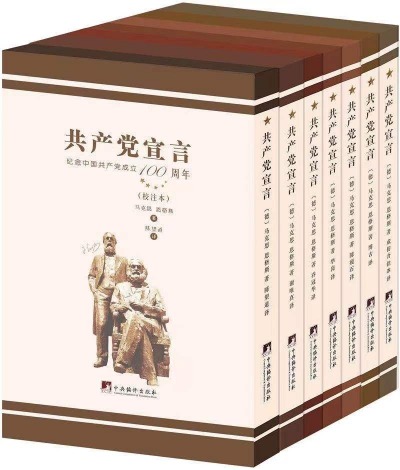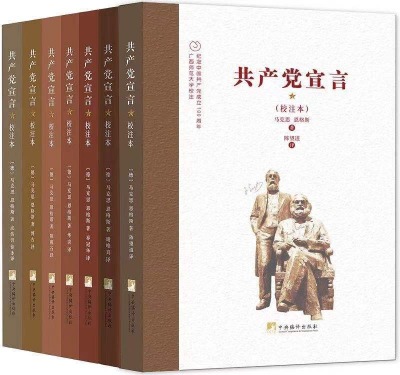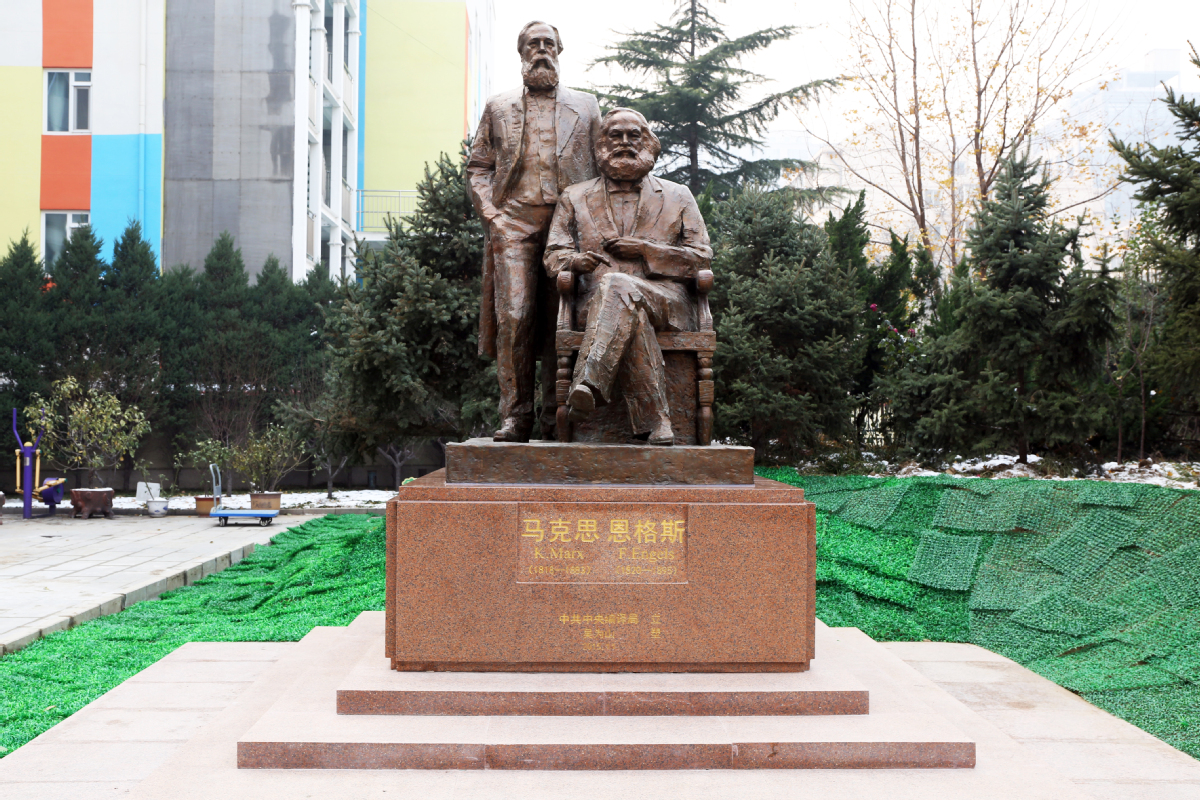

While studying in Japan between 1915 and 1919, Chen Wangdao (1891-1977) came across communist ideas via Japanese translations of The Communist Manifesto, one of the most influential political works by Karl Marx and Friedrich Engels. After returning home, Chen began to translate the Manifesto into Chinese, publishing his work in 1920.
Before that there had been only excerpts of the Manifesto in Chinese newspapers and publications, making Chen's book the first complete translation in Chinese.
Chen was also one of the founders of the Communist Party of China in 1921.
After Chen's version, there were six more translations of the Manifesto published in the country before the founding of the People's Republic of China in 1949.

To mark the centennial of the CPC, Central Compilation and Translation Press recently published a collection including all seven translated versions. The assembly of seven volumes is of historic and literary value as their authors, like Chen, enjoyed prominence in various fields.
A team led by Deng Jun and Jun Shujun, two professors with Guangxi Normal University in Nanning, Guangxi Zhuang autonomous region, was responsible for adding annotations to these versions, as there are parts written in the traditional wenyanwen language style, which is difficult for modern readers to comprehend. Additionally, other translations were themselves based on other translations --- for example, Chen's translation was based on Japanese and English versions --- therefore some resulting imperfections needed to be corrected.
The book covers feature an image of the statues of Marx and Engels which were made by Wu Weishan, director of the National Art Museum of China and a sculptor in his own right. The original statues are seated at the compound of the Central Compilation and Translation Bureau in Beijing.
